- 5 June 2015
- China
Relatives of people on board a ship that capsized on the Yangtze River have been expressing their anger at government officials.
At least 400 people are believed to have died when the Eastern Star overturned in a storm on Monday.
Chinese salvagers managed to right the ship on Friday.
But angry relatives of those on board, who have arrived at the scene, are demanding answers as to why the ship sank.
Just 14 of the 456 passengers and crew are known to have survived what looks set to be China's worst shipping disaster in more than 60 years of Communist rule.
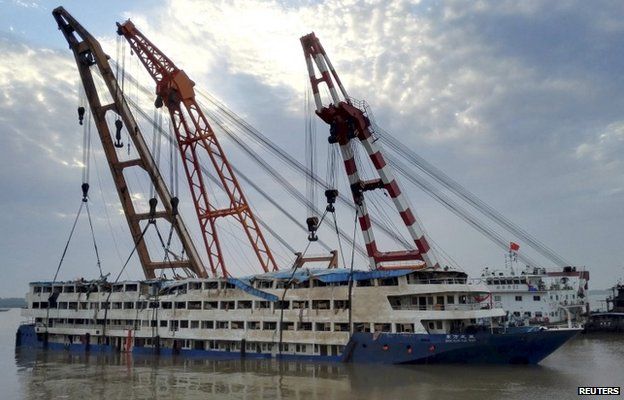
So far, only 103 bodies have been found at the accident site, in the eastern Hubei province.
Authorities say the chances of finding anyone still alive were "slim".
The ship's captain told China's Xinhua news agency that the ship sank after he lost control when winds rose suddenly.
But local reports said other ships had dropped their anchors as they knew the weather was about to worsen.
Maritime agency records showed the ship was investigated for safety violations two years ago. It was held alongside five other vessels in 2013 over safety concerns.
Several hundred relatives have arrived in the small town of Jianli, and there have been confrontations with security officials.
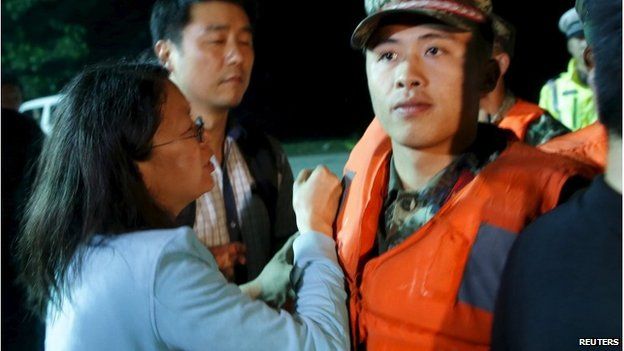
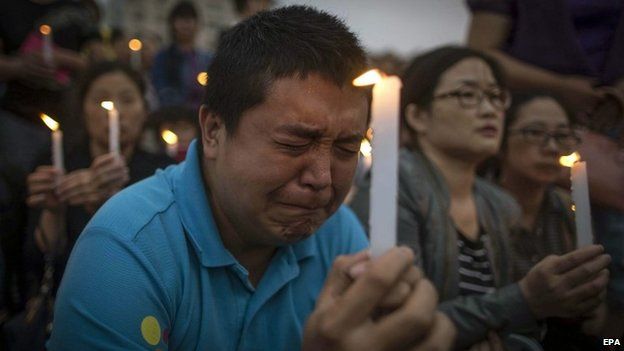
One man, Gao, whose sister was on board, told AFP: "Of course I am angry at the boat captain. How come other ships stopped, but his didn't?"
Xia Yunchen, a university lecturer whose brother was on board, interrupted a press conference by officials and called for a more detailed investigation.
"All the emphasis is on a natural disaster," she said, "but we think that this is unjust".
"Apart from natural disaster were there other causes? Is this not rational to ask?"
Ms Xia also demanded to see her brother's body, instead of receiving ashes.
Before being escorted out, she shouted at officials: "Why do you view the common people as your enemies? There's no human feeling, can't we change this habit?"

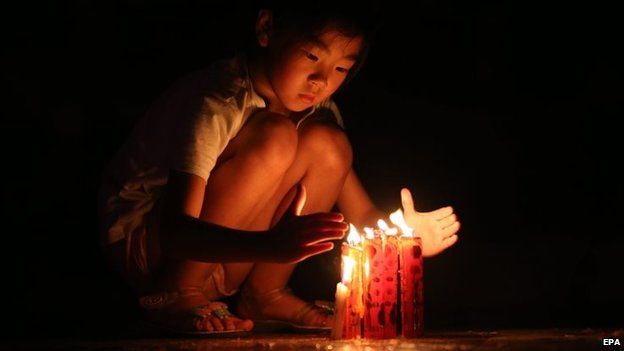
Analysis - Jill McGivering, BBC News, Regional Editor South Asia
In the past, news of a disaster on this scale might not have been reported at all in China. In the age of social media, a total blackout is almost impossible - and the main facts, including the recovery of bodies, have made headlines.
But the tone and focus of China's coverage have been very different from international news organisations. There's been no mention, for example, of protests by angry relatives of the passengers, demanding more information.
Instead, China's media carried positive stories about the courage of divers at the scene and details of their heroic rescues.
Pictures of relatives show them looking calm and composed. And there was an item too on the ship's captain - describing his struggle to keep the ship afloat and his flawless track record.
The piece, illustrated by a smiling portrait, didn't explain how he managed to survive when most of his passengers did not.

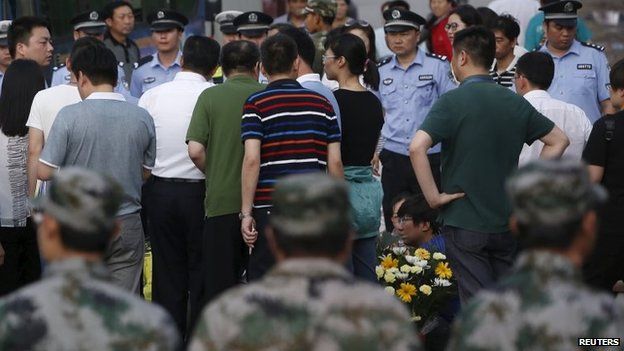
Access to the wreckage site to relatives and journalists has been closely controlled.
Chinese security officials, and other individuals, tried to prevent the BBC filming a peaceful protest by relatives.
Earlier on Friday, rescue workers righted the ship. Their work will now switch from attempting to find survivors to searching the ship's 150 cabins for bodies.
Transport Ministry Spokesperson Xu Chengguang said officials would "absolutely not cover up anything" in the investigation, state media reports.
Chinese President Xi Jinping also promised a thorough investigation into the cause of the disaster.
沒有留言:
張貼留言